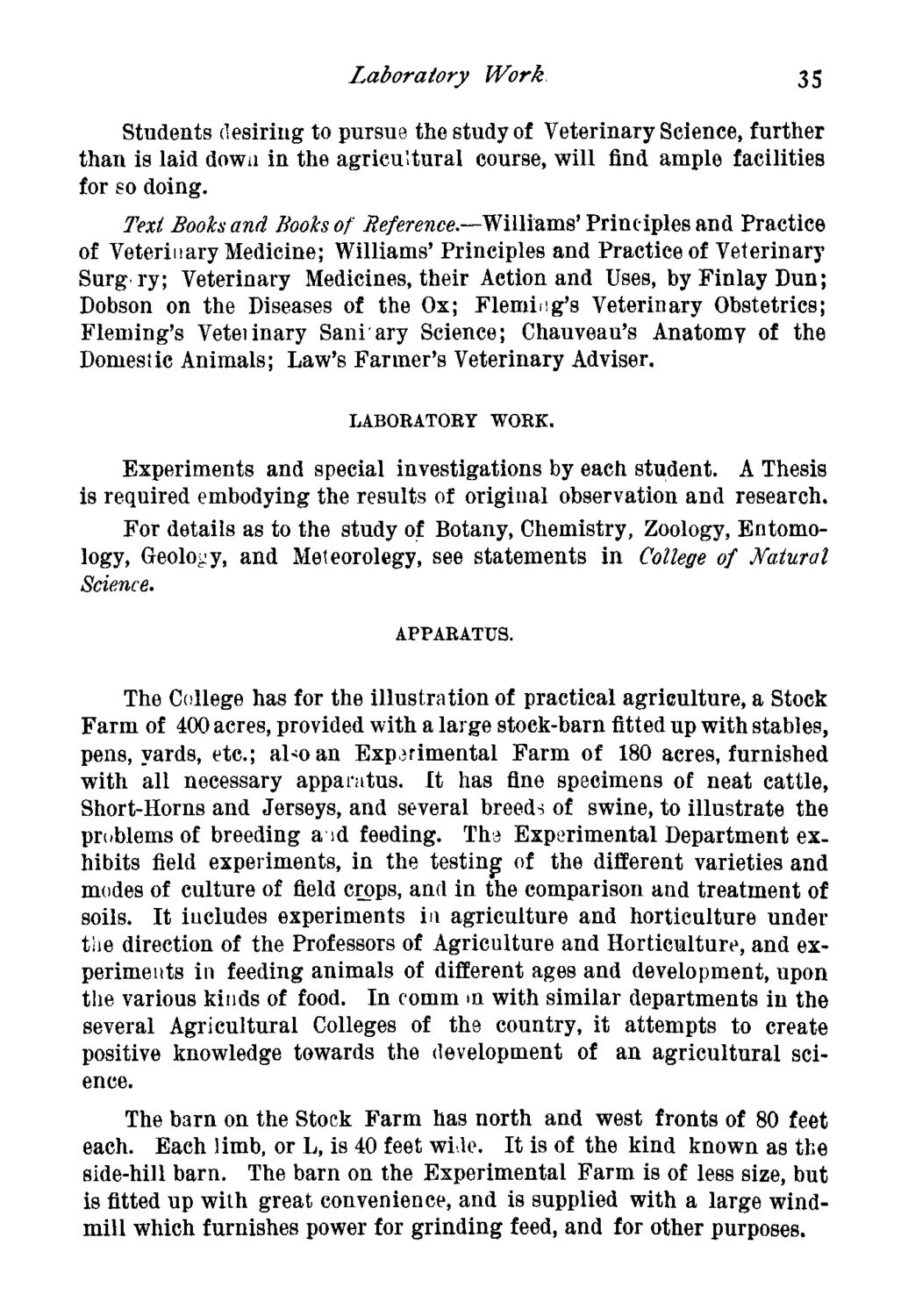| |
| |
Caption: Course Catalog - 1883-1884
This is a reduced-resolution page image for fast online browsing.

EXTRACTED TEXT FROM PAGE:
Laboratory Work 35 Students desiring to pursue the study of Veterinary Science, further than is laid down in the agricultural course, will find ample facilities for so doing. Text Books and Boohs of Reference.—Williams' Principles and Practice of Veterinary Medicine; Williams' Principles and Practice of Veterinary Surg ry; Veterinary Medicines, their Action and Uses, byFinlayDun; Dobson on the Diseases of the Ox; Fleming's Veterinary Obstetrics; Fleming's Veteiinary Saniary Science; Chauveau's Anatomy of the Domestic Animals; Law's Farmer's Veterinary Adviser. LABORATOEY WORK. Experiments and special investigations by each student. A Thesis is required embodying the results of original observation and research. For details as to the study of Botany, Chemistry, Zoology, Entomology, Geology, and Meteorolegy, see statements in College of Natural Science. APPARATUS. The College has for the illustration of practical agriculture, a Stock Farm of 400 acres, provided with a large stock-barn fitted up with stables, pens, yards, etc.; al-oan Experimental Farm of 180 acres, furnished with all necessary apparatus. It has fine specimens of neat cattle, Short-Horns and Jerseys, and several breeds of swine, to illustrate the problems of breeding a id feeding. Ths Experimental Department exhibits field experiments, in the testing of the different varieties and modes of culture of field crops, and in the comparison and treatment of soils. It iucludes experiments in agriculture and horticulture under the direction of the Professors of Agriculture and Horticulture, and experiments in feeding animals of different ages and development, upon the various kinds of food. In comm m with similar departments in the several Agricultural Colleges of the country, it attempts to create positive knowledge towards the development of an agricultural science. The barn on the Stock Farm has north and west fronts of 80 feet each. Each limb, or L, is 40 feet wi.le. It is of the kind known as the side-hill barn. The barn on the Experimental Farm is of less size, but is fitted up with great convenience, and is supplied with a large windmill which furnishes power for grinding feed, and for other purposes.
| |